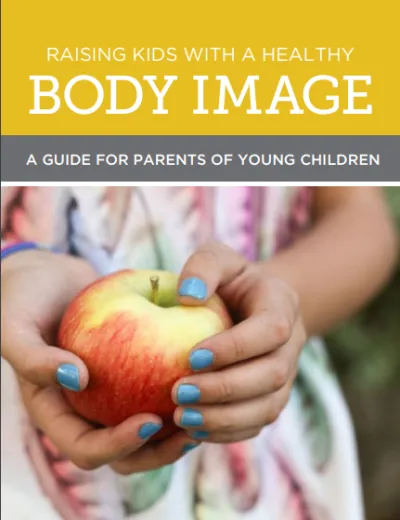
Feeling comfortable with our bodies and accepting the way we look is all part of having a healthy body image. How we feel about our bodies forms a big part of our self-esteem.
Body image issues can develop at a very young age, impacting a child's ability to enjoy life and form close relationships. Family, peers, and even media representations of the "ideal" body can influence how satisfied children feel in their bodies. A poor body image can often make them feel anxious, self-conscious, and isolated.
Some children become so fixated on trying to change their body shape, they engage in unhealthy practices with food and exercise. Intense feelings of disappointment, shame and guilt in their relationship with food can often follow.
These children may also be at a greater risk of excessive weight gain, eating disorders, and can become targets for weight-related bullying at school.
How to build up a healthy body image in the family:
- Focus on health, not weight. Be aware of your own negative talk around weight. When a child hears their parent talking about the need to lose (or put on) weight, it can affect how they feel about themselves. So, try to shift conversations away from weight, and avoid drawing attention to your child's weight or shape.
- Teach children to be happy with the body they have. The best way to teach your children to be happy with their body is to reinforce how happy you are with your own body. Even if you struggle with your weight or body image at times, try to stay positive around your children. When children see you caring for you health and eating well, they pick up and even mimic that behaviour. Feeling good about yourself, having a positive body image and exercising in a healthy manner has a lasting and positive impact on the whole family.
- Focus on healthy eating, not dieting or food restrictions. Children hear about dieting at a young age and can develop strong body dissatisfaction as a result. And often, children who are on diets build up negative feelings about food. Instead of focusing on what not to eat, or about eating too much or too little, just keep offering and make available well-balanced healthy meals and snacks. And keep promoting and celebrating body positivity by focusing on what makes everyone unique and valuing how healthy bodies come in all shapes and sizes.
- Be open to hearing your child's concerns. Have an open conversation if your child expresses concern about their body. Invite them to be honest about how they feel, and listen patiently. Steer away from a focus on weight or dieting if/when it comes up. Instead, focus on balance and that foods are neither good nor bad. After all, healthy bodies and a positive body image often have no relation to actual body size.
Concerns about your child's weight
Children grow at different rates at different times, so it is not always easy to tell if a child is overweight. If you are worried that your child has unhealthy weight gain, here are some actions to consider:
- Learn the "providing, not depriving" approach. When children are told to eat less, not only do they feel bad about themselves, but they can react to food restrictions by eating more, not less. Find more information on the Ellyn Satter website, an expert on feeding, to learn more.
- Get the whole family involved. If there are concerns about weight, work on changing the home environment without talking about your worries - let your child's body grow into the one that is right for them. Could you try preparing home meals more often and eat out less? Having chips in the cupboard less? Organizing more family fun adventures outside?
- Talk to a health care professional. A pediatric dietitian can review eating and activity habits and make suggestions on how to make positive changes. If you are worried about underlying medical problems, speak to your physician. Make sure to consult them as well if your child starts obsessing about weight, or gains a lot of weight in a short period of time. If you are worried about health professionals discussing weight around your child, set up an appointment without your child present to discuss your concerns first.
Some medications can affect your child's eating habits and may result in weight gain. If your child is experiencing an increase in appetite due to medication, learn more here.
If your child loses a lot of weight, or seems to have unusual eating habits, contact your physician for an assessment. Low weight carries other health concerns. For more information on disordered eating behaviours visit the Kelty Eating Disorders website. You could also check out relevant content on the Foundry Website or share it with your youth.




